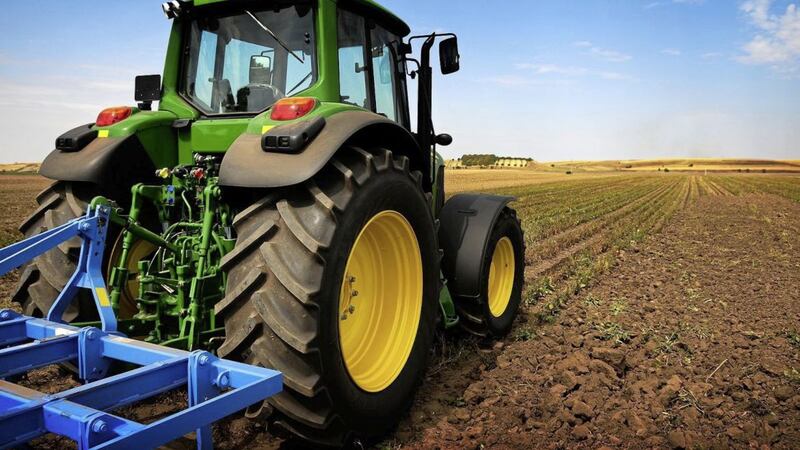NORTHERN Ireland has experienced a summer of extremes, from blistering heatwaves to torrential flooding. But while many of us enjoyed the glorious rays of sunshine, farmers were locked in a continual battle with the weather, facing intense heatwaves, before tackling unexpected mass rainfall.
With the farming calendar ruled by the seasons, this type of extreme weather often has a severe knock-on effect across the rural landscape.
Last year was catalogued as the wettest summer months across western Europe. This is a direct contrast to the unexpected extreme summer drought in 2018, significantly impacting farmers’ forward planning for the rest of the year.
After mounting concern that winter crops such as barley and wheat that were planted in very wet conditions would not grow, the weather rapidly changed.
Farmers were then faced with drought conditions and struggled against soil moisture deficits. There are still fluctuations between high soil moisture issues saturating the fields and low soil moisture deficits, leading to growth restrictions. While this is affecting crop outputs, it also has an impact on a farmer’s own business planning, with many having less grain, silage and hay being produced for their animals.
That said, farmers are well-experienced in dealing with the challenges that our unpredictable weather brings. However, it is not just the clouds they need to pay attention to, with a farming ripple-affect often felt from across the pond.
Currently, grain prices are rising across Europe, where many farmers across the province source their grain. The extreme weather conditions have impacted the farming landscape, with farmers across Europe producing lower-yielding crops for exporting, making it tougher for local farmers to source grain and straw within a reasonable radius and affecting costs dramatically.
This, coupled with the uncertainty brought by an impending Brexit, raises questions as to how farmers will be able to manage the land for food production and ensure they can access adequate feed to sustain livestock numbers.
So how will this impact the rest of the year? While farmers often take time now to forward-plan for the winter - bringing the animals inside, planning autumn grass growth and winter feed preparations - extra provisions may be required to ensure farms are protected. The imbalance in chain of supply and demand means farmers must put extra thought into plans for the months ahead.
Along with the usual temperamental weather conditions across Northern Ireland and beyond, the recent extremes flag an urgent need for farmers to proactively protect themselves financially against future events.
One way to do this is to guarantee that your farm, including silage, grain and feed, is insured at the correct value to reflect market prices. It is vital that your farm is not under-insured – this can be particularly detrimental when dealing with losses and high market prices.
It is key that farmers take time to ensure that their farm is covered correctly. There will always be challenges throughout the year, especially across the fields of Northern Ireland.
However, if you forward-plan financial protection while also preparing to wrap your farm up warm for the winter, you are more likely to withstand the environmental challenges that come your way. Every aspect of farming life should be protected, right down to the money in your pocket.
:: Richard Henderson is head of agriculture at Autoline Insurance Group (www.autoline.co.uk/farm)







